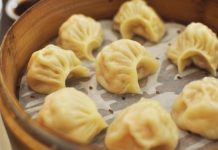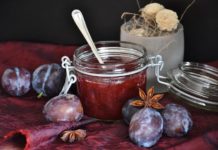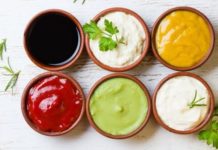Content
What is matcha (matcha)?
Among the huge variety of types and varieties of tea, Japanese green tea matcha (in Japanese - “matcha”) should be distinguished in a separate category. This tea is very popular in Japan for its extraordinary health benefits. Some refer to it as a magic powder for both its medicinal functions and its appearance. The fact is that outwardly, tea looks like a powder, since its leaves are very well crushed.
This drink has no contraindications, except that individual intolerance or allergies can become an obstacle to its use.
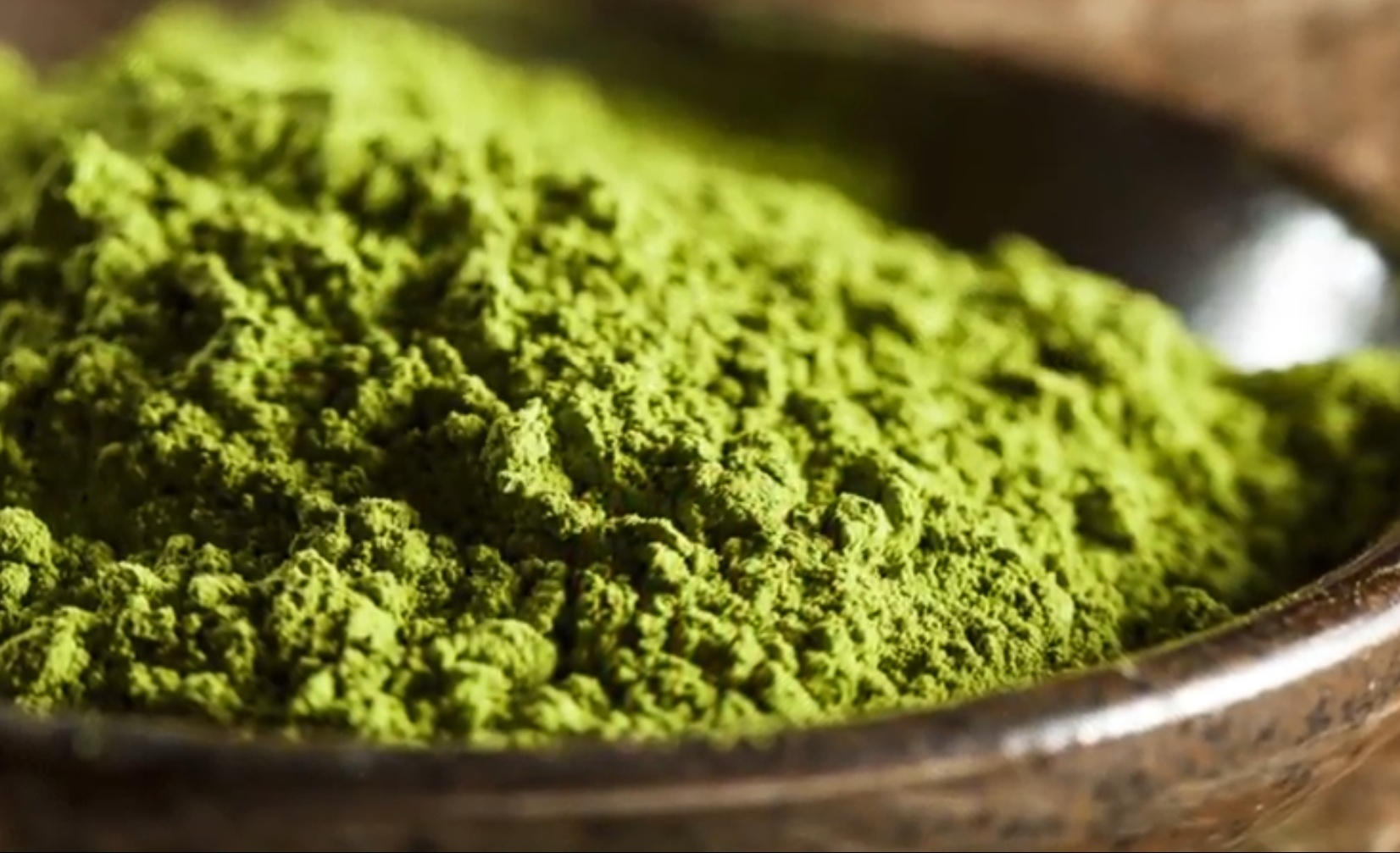
The beneficial and healing properties of tea can be judged on the basis of the following data:
| Nutrient, mg | 1 gram of matcha contains: | Nutrient benefits: |
|---|---|---|
| Protein | 3.35 | Is a building material for body cells |
| Dietary fiber | 10 | For good digestion |
| Calcium | 0.05 | For strong teeth and bones |
| Iron | 0.01 | Maintains normal hemoglobin levels |
| Potassium | 0.45 | To support metabolic reactions |
| Vitamin C | 0.1 | To improve the integument of the skin, maintain immunity |
Matcha history
Today, matcha is considered a tea of Japanese origin. However, the history of the origin of the match began in China in the distant 9th century. n. e. It was there that they came up with the idea of grinding tea leaves into powder, mixing various spices with it. For a long time, tea pressed into briquettes was exclusively a Chinese drink. And only in the 14th century, the drink, along with the Chinese preachers of Buddhism, came to Japan. Buddhist monks had a special ritual - drinking tea. Specifically, matcha tea. It was he, thanks to his healing properties, who maintained physical shape and made their mind clear. Such tea drinking was aimed at inner harmony and outer contemplation.
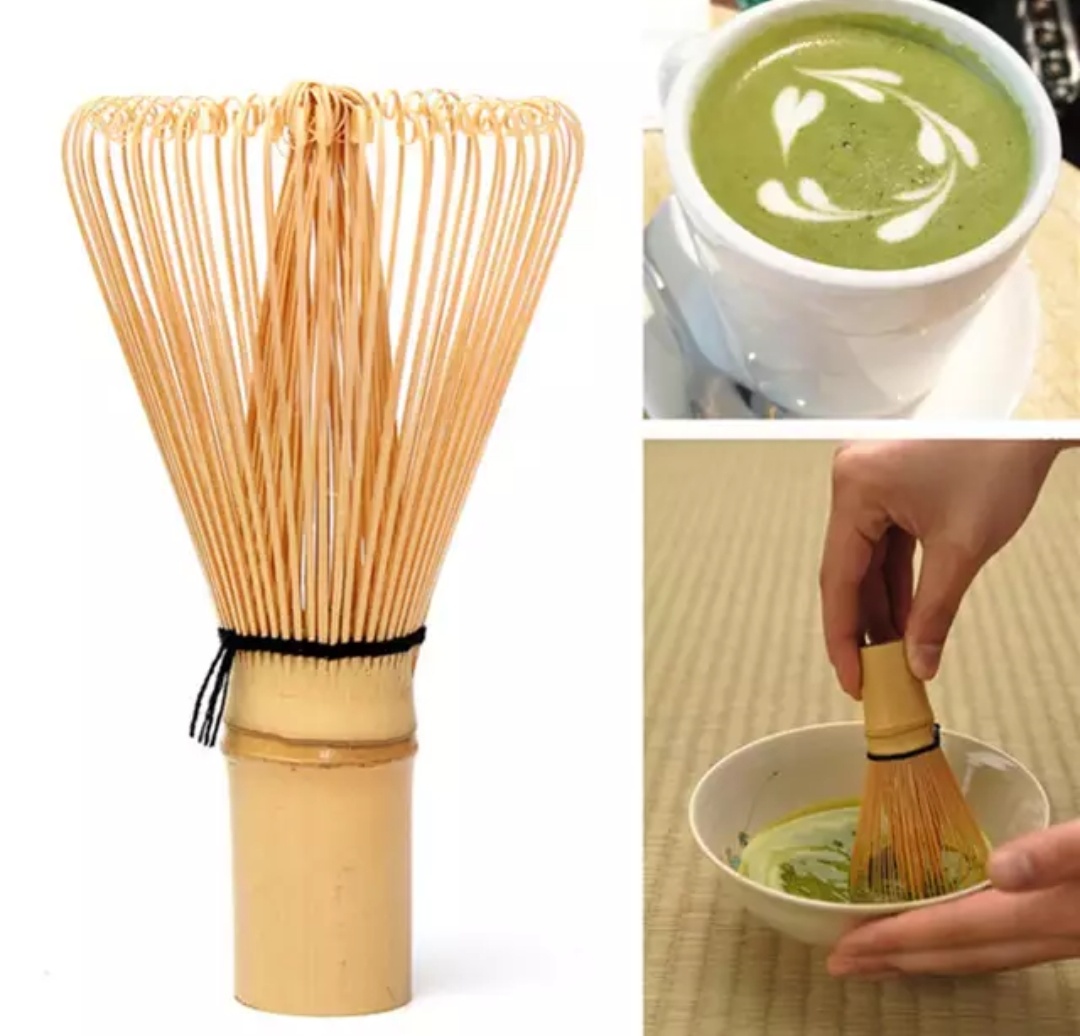
Useful properties of matcha tea
In addition to its unique appearance (tea is a pleasant green powder), matcha is a treasure trove of beneficial properties. Everything that is valuable in the drink completely enters the human body, because it is used together with very small tea leaves.
Matcha strengthens the immune system. All this is due to the presence of a large amount of vitamins and amino acids. Vitamins A, B, C, E, K, zinc, iodine, iron. And this is not a complete list.
The value of tea is increased by the presence of polyphenols, chlorophyll and dietary fiber - these are substances with antioxidant properties. These properties inhibit the action of free radicals and maintain youthfulness and slow down the aging process. Maybe here it is, the reason for the longevity and youth of the inhabitants of the land of the rising sun?
Regular consumption of matcha tea helps to reduce the level of bad cholesterol.
Perfect for those who want to lose weight. Tea contains substances that increase metabolism. According to research, tea increases by a quarter the percentage of calories burned during physical activity.
Matcha tea is a good detoxifier. It removes toxins and toxins from the body.
The tea contains an easily digestible fiber.
It has anti-carcinogenic and anti-inflammatory properties.
A good alternative for those wishing to stop drinking coffee. Matcha tea has a tonic effect and improves mood.
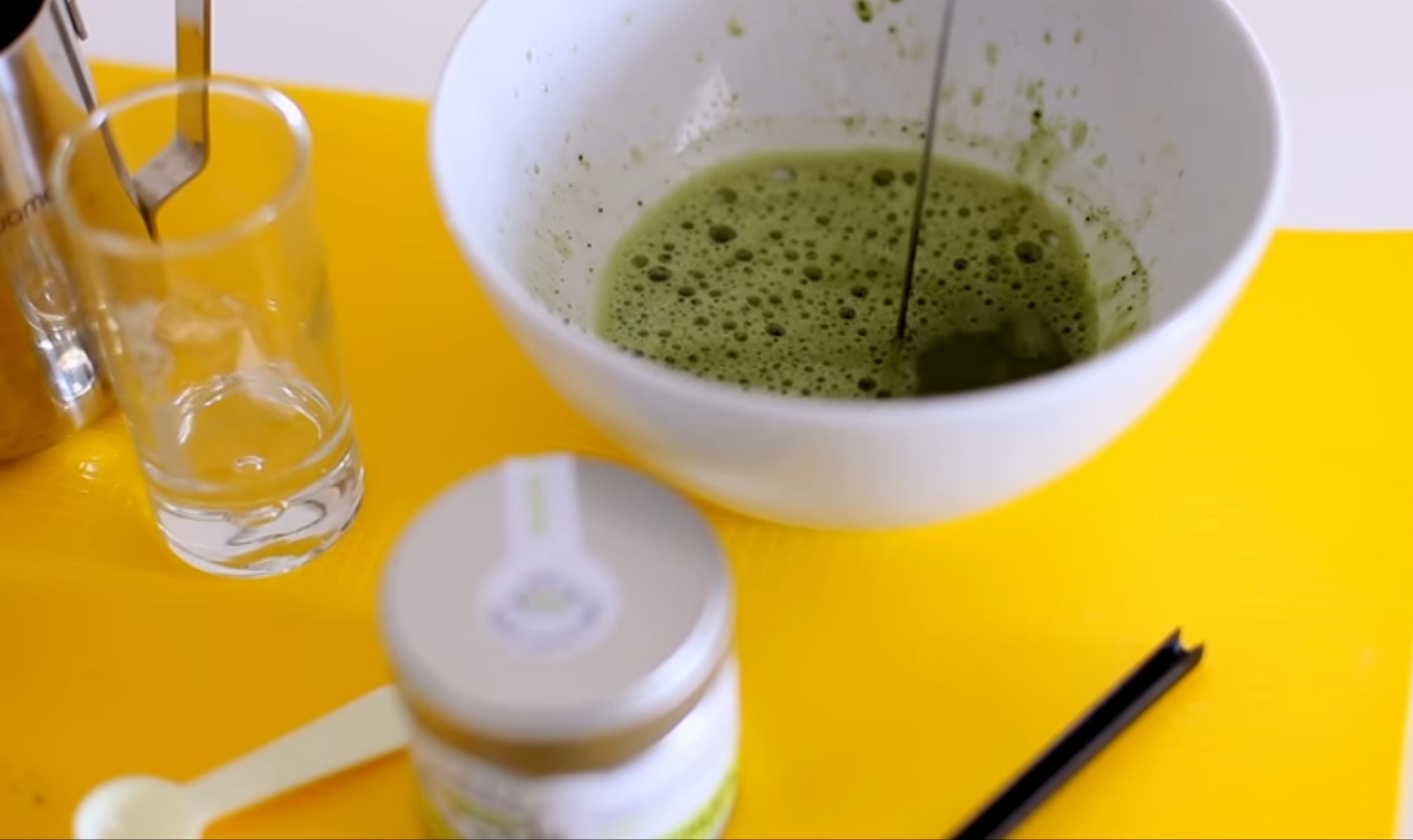
What to look for when choosing a match
You should definitely pay attention to the color of the tea: it has a pleasant bright green color. Matcha tea is often sold packaged and there is no way to see its properties through the package.
The packaging must indicate that the tea is organic in order to exclude the presence of chemicals in the raw materials.
It is best if the country of origin is Japan. It is believed that there are more favorable conditions for its cultivation.
Real authentic matcha tea cannot be cheap: the average price per 100 grams is 1000 rubles.
Matcha Japanese tea varieties
As a rule, the price range of matcha is above average. The cost depends on the type of tea, which is determined by the growing conditions and processing method.
The more expensive tea leaves were grown at the top of the tea bush. The taste of the tea collected at the bottom will be less pronounced; such tea is considered inferior in quality.
Matcha tea leaves are dried exclusively in shaded rooms, where the sun's rays do not fall. To obtain the “correct” traditional taste of this drink, a unique grinding technique must be followed.
The main varieties of matcha tea are:
-
Matcha Aorashi
Traditional green tea of the Uji Valley has been grown by local residents for centuries. The peculiarity of this variety is that it is made exclusively from young leaves of the tea bush. This explains the deep, slightly sweet taste of the tea. Translated from Japanese, Aorashi means "blue storm". The combination of so many amino acids and vitamins instantly has a powerful effect on the body. Tea invigorates, helps to cope with apathy and irritation.
-
Match Isuzu
Tea with pleasant nutty caramel flavors got its name in honor of the river flowing near the Buddhist monastery. It was believed that the waters of the river, as it were, cleanse the mind and body of a person before entering the temple.
Collected in the warm season, young shoots of the tea bush are traditionally sorted, evaporated and sent for grinding.
The peculiarity of this type of tea is an unusually harmonious soft taste. In addition to its taste, it is difficult to overestimate its effect on the body at the cellular level. Matcha Isuzu activates energy, slows down the aging process and regenerates the skin. In addition, it helps to fight such serious diseases as cancer and diabetes.
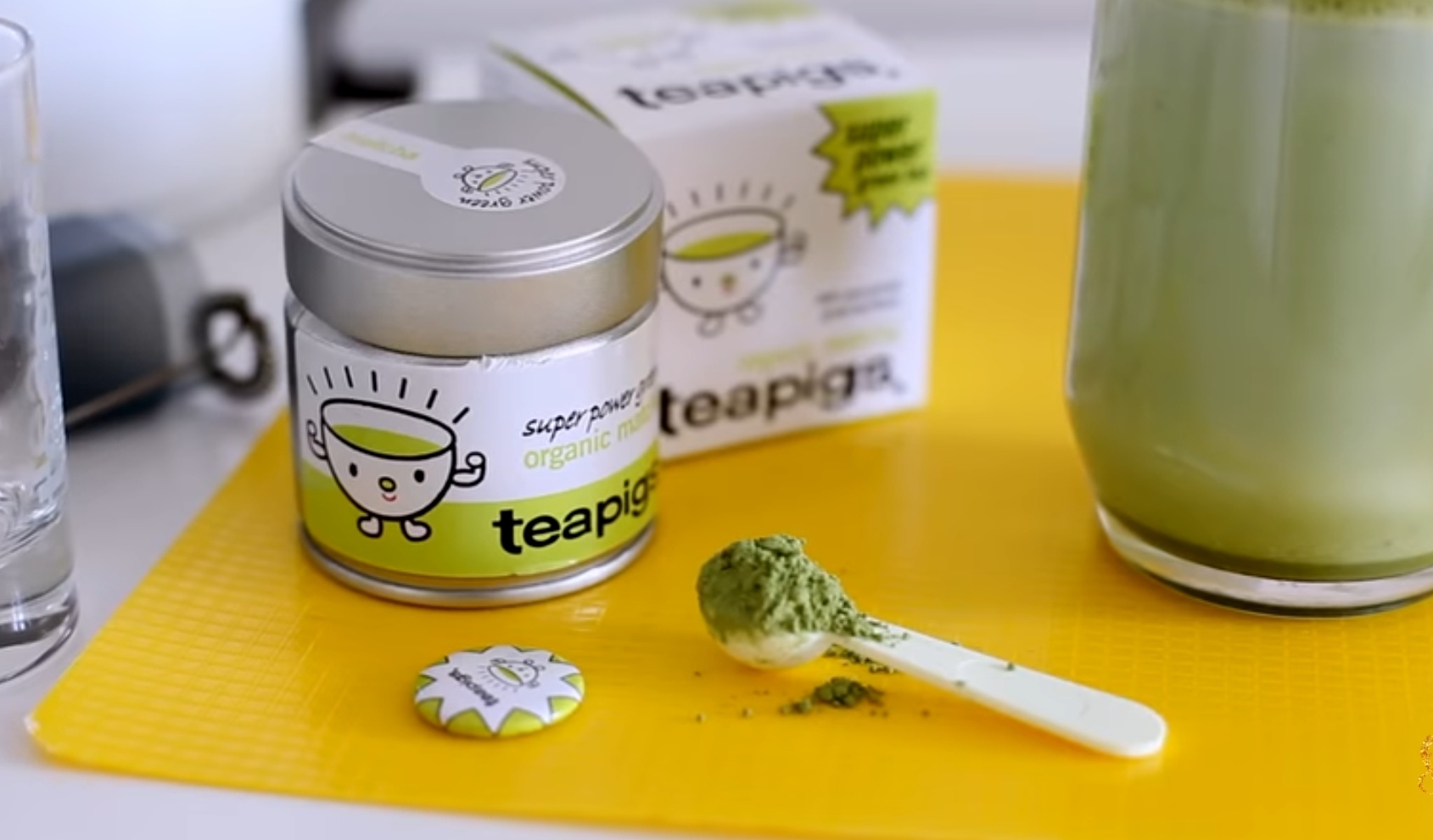
-
Match Yugen
This drink can be recommended for lovers of meditation and self-absorption. The pronounced tart taste of the tea relaxes the body and mind. This type of tea is not intended for drinking with a company, it is a “personal” drink. It is not for nothing that its name means “the sacrament of the evening” in Japanese.
The drink contains l-theanine.
It is noteworthy that the harvest takes place on a specific day, or rather, at night. Special breeding varieties are harvested exactly on the 88th night after the onset of the new year.
-
Matcha Kinrin
This variety of matches is a favorite among the Japanese. The tea has a pronounced floral taste with hints of citrus.
Young tea shoots are harvested in the spring season in the Japanese Urji Valley. Traditionally grown under the shelter of bamboo canopies, to avoid the rays of the scorching sun.
Tea is one of the most popular among the Japanese people for a reason. The Kinrin variety is a real storehouse of amino acids. This is a real panacea for the nervous system. Its regular use leads a person to inner harmony, replacing stress with a good mood.
The Japanese themselves call the Kinrin variety a majestic gold.
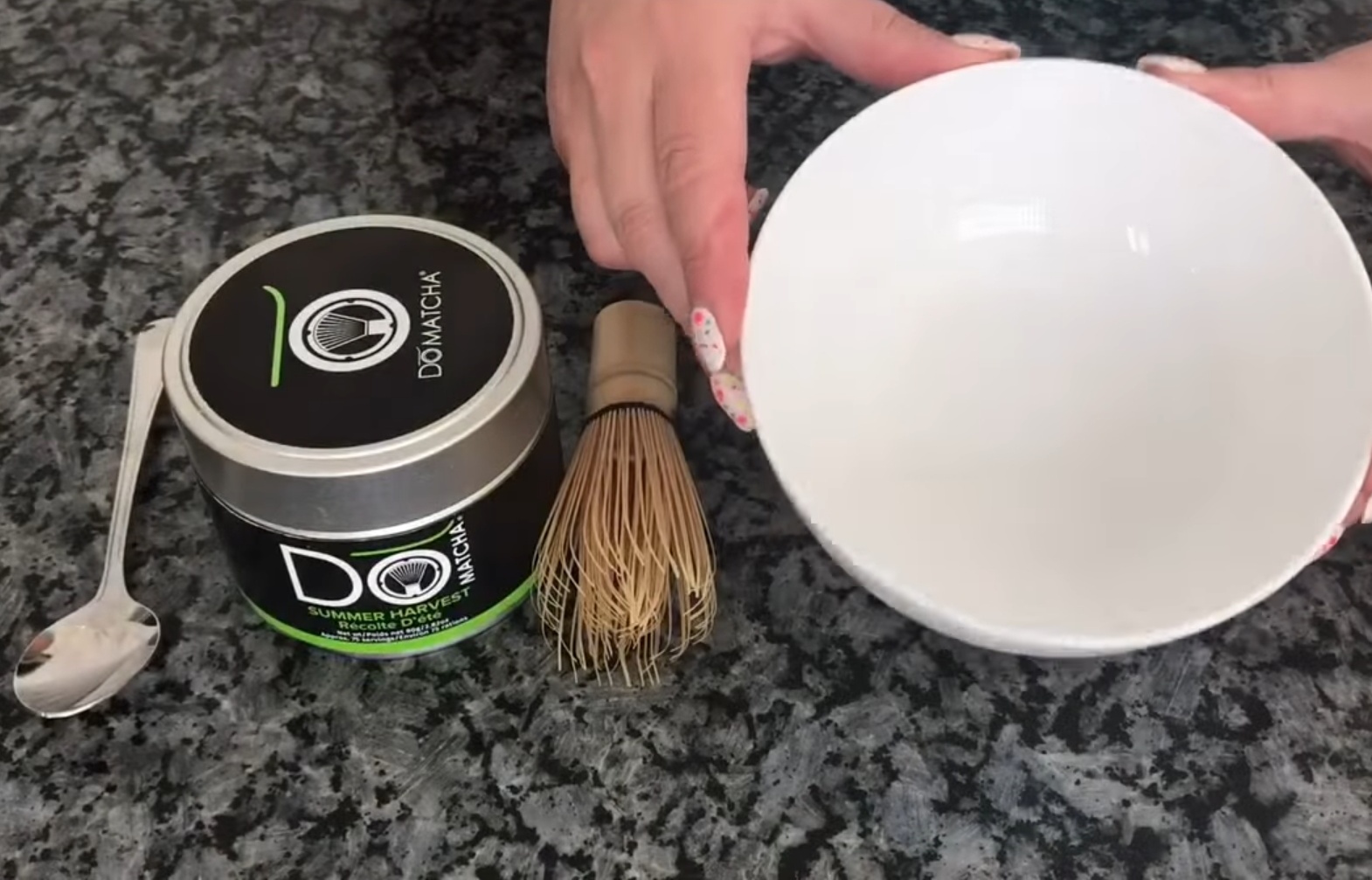
-
Matcha Chiginoshiro
Young shoots ripen in the warm sun without using sheds. Harvested future tea in the spring and summer; when processing shoots, the use of high temperatures is avoided.
Like all other varieties, it has antioxidants and l-theanine. Chiginoshiro contains fiber, which helps to eliminate toxins and toxins.
This variety is perfect for completing a difficult day at work, helps to streamline thoughts and tune in to a calm and sound sleep.
-
Matcha Wako
This drink is a premium green tea.
Tea is grown in semi-darkness, avoiding direct sunlight and daylight. All the natural properties of the tea remain intact thanks to the special manual processing and avoidance of high temperatures.
This type of tea can be used as an alternative to coffee. Besides amino acids and vitamins, the wako variety is also rich in caffeine. Also, the use of matcha Wako has a good detox effect on the body.
Cooking recipes
To prepare a matcha you need a certain set of dishes and a few simple conditions. It is good if you can find a measuring cup to prepare the drink in the correct proportions. It is better to choose a ceramic or porcelain container for brewing tea. You will need a whisk to stir the tea.
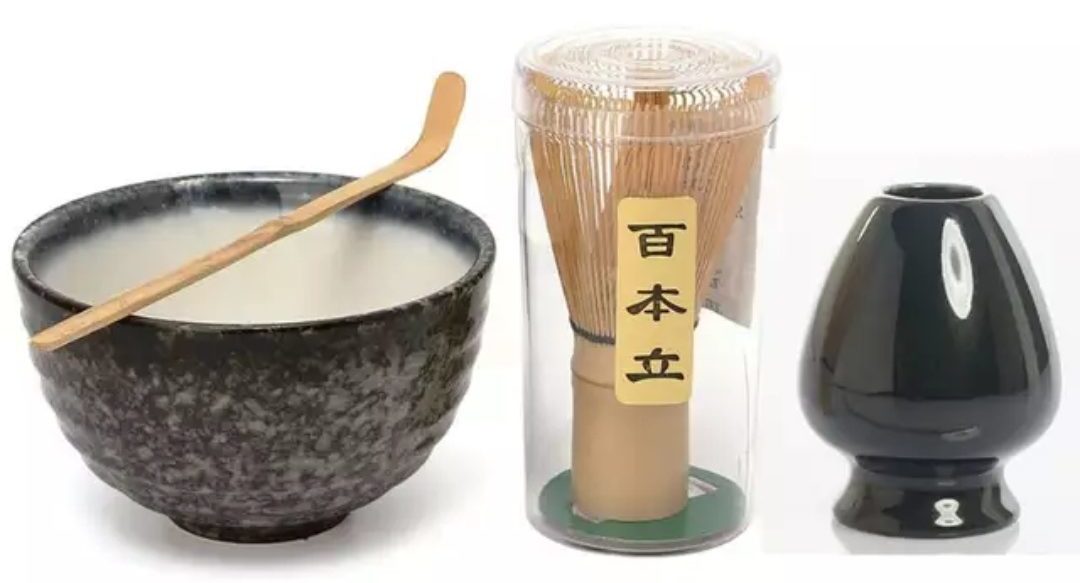
Tea must be brewed in a preheated container. In order to avoid lumps in the drink, the matcha must be passed through a sieve. Do not pour boiling water over matcha powder, the water temperature should be 70-80 degrees.
It is imperative to store tea in a tightly closed jar so that air does not enter. Otherwise, matcha may lose some of its beneficial properties.
-
Weak Match
In another way, feeling. The classic preparation consists of mixing half a teaspoon (2-3 grams) of tea with 50-70 ml of hot water. If desired, the tea can be whipped until frothy. The beverage is light green in color. Usut has a slightly bitter taste.
-
Strong match
In Japanese - koicha. The recipe is similar from the start, only a full teaspoon of tea powder (4-5 grams) is taken for preparation and 50 ml of hot water is poured. The consistency of this tea turns out to be quite thick, the mixture is mixed with slow movements. The tea variety is usually taken from older tea bushes. Thus, the taste of the koich is sweeter and more delicate.
-
Matcha Latte
This is the name of tea with milk added to it. Matcha tea with milk is characterized by a very delicate taste. It is prepared as follows: add 2-3 grams of matcha tea to hot milk and stir until foam appears. Sugar is added to the drink at will and to taste.
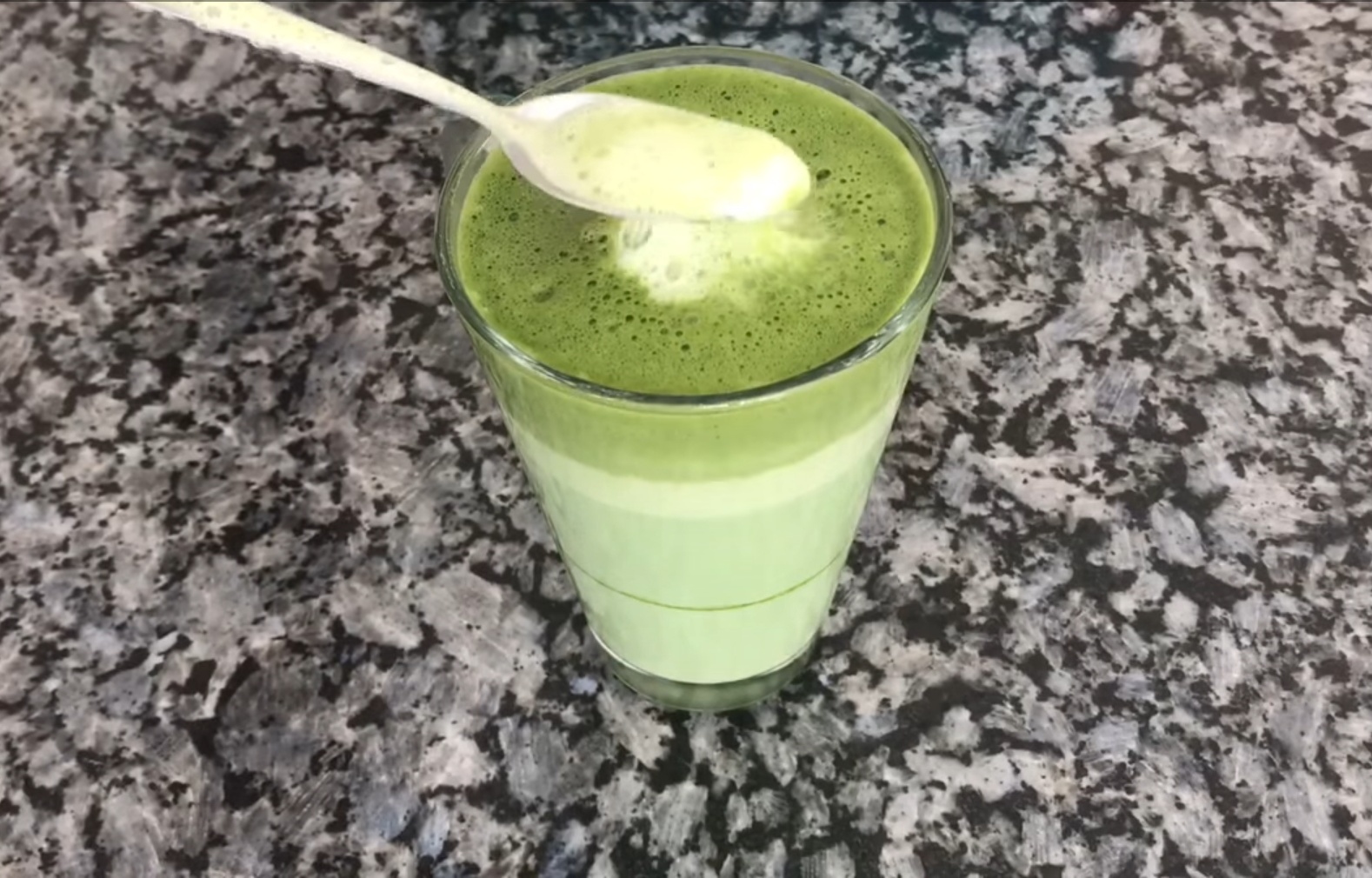
-
Matcha Latte chilled
In hot weather, a refreshing matcha is perfect. The cooking method is the same as with Matcha Latte. The only caveat: after mixing milk, tea and sugar, add another 3-4 ice cubes.
-
Matcha Coffee
Alternatively, you can make Matcha coffee instead of your morning cup of classic coffee. To do this, stir coffee with matcha powder and pour hot water over the mixture. Sugar and milk are added to taste.
-
Matcha cream frappe
Japanese children adore this drink. In addition to the fact that the milkshake is very tasty, thanks to the addition of matcha, it also becomes very useful.
For cooking, mix 200 ml of milk, 5-6 grams of matcha and sugar to taste; then beat it with a mixer. Serve with whipped cream or ice cream.
-
Matcha vitamin drink
Such a drink will be very useful, especially in the cold season, since it is served hot. This is a real storehouse of vitamins and nutrients, because in addition to matcha, it contains ginger, orange, lemon and honey. It is prepared as follows: orange peel, a few slices of lemon, ginger and honey are placed in a large bowl. The mixture is poured with boiling water and infused for 8 minutes. Matcha tea is brewed in a separate bowl in a classic way. The last step is to mix both drinks into one. In addition to its beneficial properties, the drink has a pleasant tart taste.
Besides making drinks, matcha is widely used in desserts, baked goods, sauces and cooking.
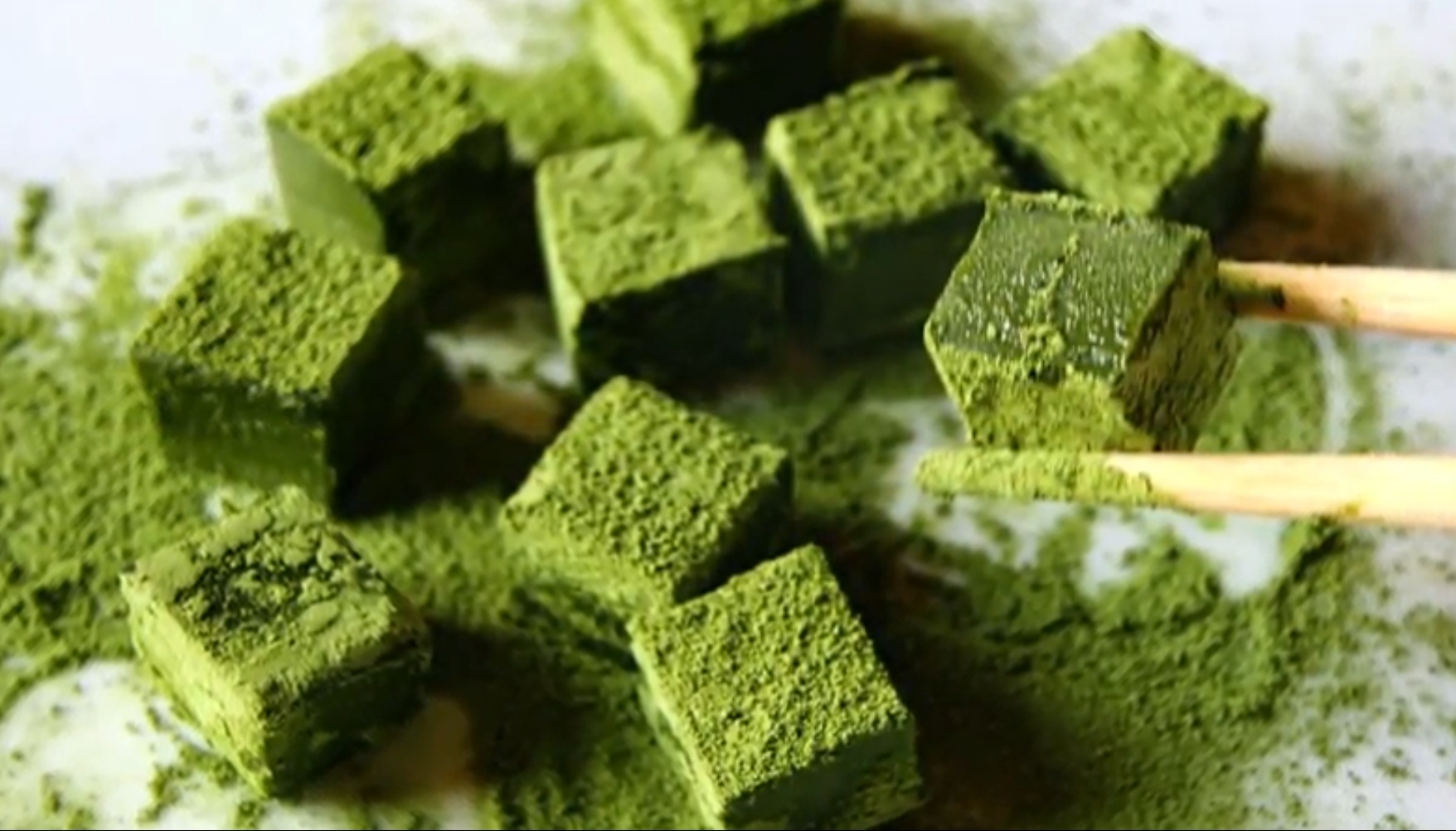
Top Match Breeders
Organic matcha powder
The tea is presented by the Russian superfood brand - UFEELGOOD. The cost of a pack of 100 g is 700 rubles. Tea producer - China.
Advantages:
- high quality of the product;
- aromatic drink;
- taste as described.
Disadvantages:
- there is no information on the packaging about the degree of roasting of fruits;
- price.
Weico Jee Matcha
Authentic Japanese tea from Zhejiang province. Consists of young shoots of a tea bush. It is brewed with water, the temperature of which should not exceed 80 degrees. The cost of a 100-gram package is 500 rubles. Shelf life 1-2 years.
Advantages:
- consists exclusively of natural and organic products;
- the tea drink has a pleasant taste and color;
- convenient packaging.
Disadvantages:
- not always on sale.
Matcha (Matcha) Standard Grade High Quality
Production region - Shizuoko Prefecture, Japan. The composition of the raw material is young leaves of a tea bush. The cost of a package of 50 g is 400 rubles.
Advantages:
- the richest composition;
- original specific taste;
- promotes weight loss.
Disadvantages:
- high price;
- insufficient information on the packaging.
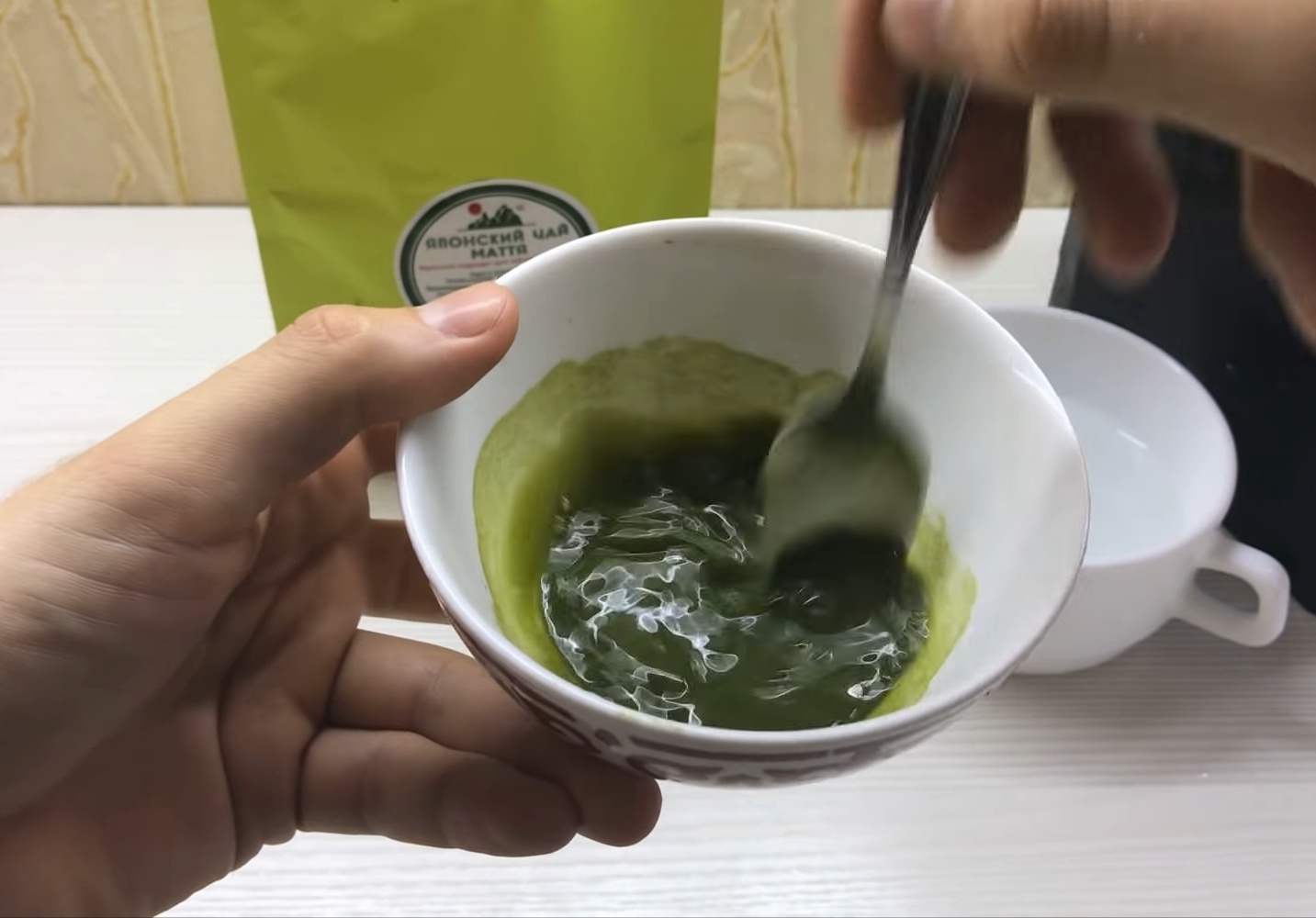
Match "Sunny mood"
Country of origin - Japan. Price for 100 g - 1000 rubles.
Advantages:
- rich tart taste;
- pleasant aroma;
- the packaging contains information about the yield and composition of the product.
Disadvantages:
- the cost of the product is above average.
Polezzno green tea Matcha
Country of origin - China. Ingredients - 100% natural matcha tea. The average cost for 100 grams of a drink is 800 rubles.
Advantages:
- authentic taste and aroma of tea;
- the composition of raw materials guarantees maximum benefits to the body;
- convenient packaging through which the color of the tea is visible.
Disadvantages:
- price.
Distinctly Organic Matcha Tea
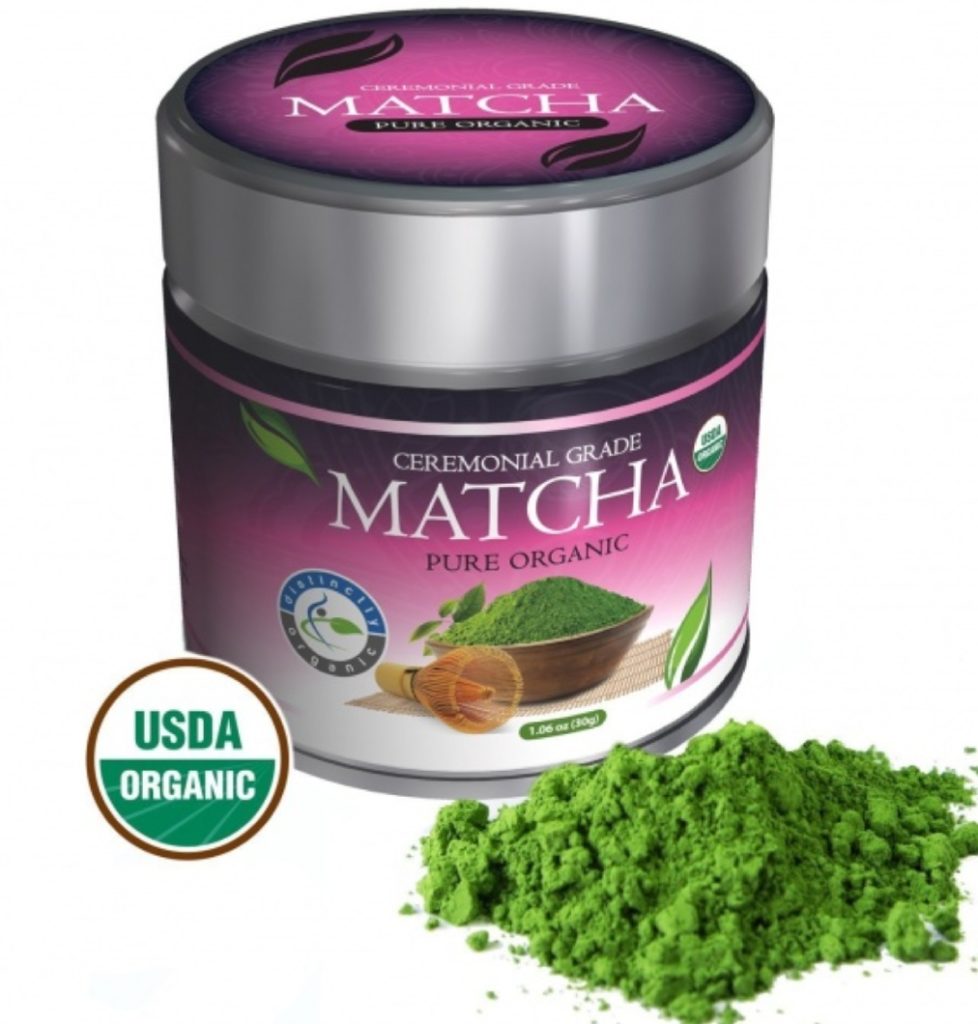
This tea is not only an original type, but also belongs to the ceremonial varieties of matcha tea. Raw materials for tea are grown in Japan, in the Nishio province. The quality of the product is confirmed by the OCIA Japan organic certificate. The average price of this kind of matcha for 30 g is 1500 rubles.
Advantages:
- very tasty;
- a nutritious drink helps fight hunger;
- brews well;
- ceremonial grade;
- quality confirmation by a certificate;
- convenient storage jar.
Disadvantages:
- very high cost.




